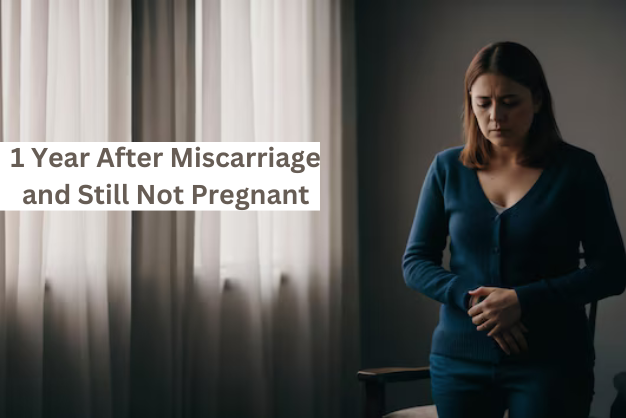1 Year After Miscarriage and Still Not Pregnant
It can be incredibly difficult to cope with a miscarriage. The loss of a pregnancy can be emotionally devastating, and it can take a long time to heal. If you have experienced a miscarriage and are still not pregnant, you may be feeling frustrated, confused, and alone.
At New World Fertility Centre in Delhi, we understand how difficult it can be to go through a miscarriage. We are here to support you and your partner every step of the way. In this blog, we will discuss some of the common emotions that people experience after a miscarriage, and we will offer some tips for coping with grief and moving forward.
Common Emotions After a Miscarriage
It is normal to experience a wide range of emotions after a miscarriage. Some of the most common emotions include:
Sadness: This is a natural reaction to the loss of a pregnancy. It is important to allow yourself to grieve and to express your sadness in healthy ways.
Anger: You may feel angry at yourself, your partner, or the world. It is important to remember that you are not to blame for the miscarriage.
Guilt: You may feel guilty about something that you did or did not do during your pregnancy. It is important to remember that you are not responsible for the miscarriage.
Confusion: You may be confused about what happened and why. It is important to talk to your doctor about your questions and concerns.
Loneliness: You may feel lonely and isolated. It is important to reach out to friends, family, and other support groups.
Tips for Coping with Grief
There is no right or wrong way to grieve. However, there are some things that you can do to help yourself cope with grief. Some tips include:
Talk to someone you trust: Talking to someone you trust can help you to process your emotions.
Join a support group: A support group can provide you with emotional support from others who have experienced a miscarriage.
Take care of yourself: It is important to take care of your physical and emotional health. Make sure to get enough sleep, eat healthy foods, and exercise regularly.
Find healthy ways to express your grief: Some healthy ways to express grief include writing, journaling, painting, or spending time in nature.
Be patient with yourself: It takes time to heal from a miscarriage. Be patient with yourself and don't put too much pressure on yourself to move on.
Moving Forward
If you are ready to try for another pregnancy, there are a number of things that you can do to increase your chances of success. Some tips include:
- See a fertility specialist: A fertility specialist can help you to identify any underlying fertility issues and develop a treatment plan.
- Make lifestyle changes: Certain lifestyle changes, such as quitting smoking and drinking alcohol, can improve your fertility.
- Manage stress: Stress can have a negative impact on fertility. There are a number of stress management techniques that you can try, such as yoga, meditation, or deep breathing.
We Are Here to Support You
At New World Fertility Centre in Delhi, we are committed to providing you with the highest quality of care. We understand how difficult it can be to go through a miscarriage, and we are here to support you every step of the way. If you are considering trying for another pregnancy, we encourage you to schedule a consultation with one of our fertility specialists.
Frequently Asked Questions (FAQs)
1. Is it normal to not get pregnant a year after a miscarriage?
Yes, it can happen. While some women conceive easily after a miscarriage, others may experience difficulties due to underlying medical or fertility issues. Consulting a fertility specialist is recommended if you have been trying to conceive for a year without success.
2. What could be causing me to not get pregnant after a miscarriage?
Several factors can affect your ability to conceive after a miscarriage, such as hormonal imbalances, uterine scarring, male fertility issues, emotional stress, age, or underlying medical conditions like endometriosis or fibroids.
3. Should I see a doctor if I haven't gotten pregnant after a miscarriage?
Yes, if it has been a year without success, it's advisable to seek help from a fertility specialist. They will perform diagnostic tests to identify the causes and recommend appropriate treatments.
4. What tests are done to determine why I am not getting pregnant?
Common tests include:
- Hormonal testing
- Ultrasound to examine uterine health
- Semen analysis for male factor infertility
- Hysteroscopy to check for uterine abnormalities
- Blood tests to check ovarian reserve (AMH levels)
5. Can stress impact my ability to get pregnant after a miscarriage?
Yes, stress can interfere with hormonal balance, affecting ovulation and fertility. Managing stress through counseling, meditation, or support groups can help improve your chances of conception.

 Oct-22-2024
Oct-22-2024